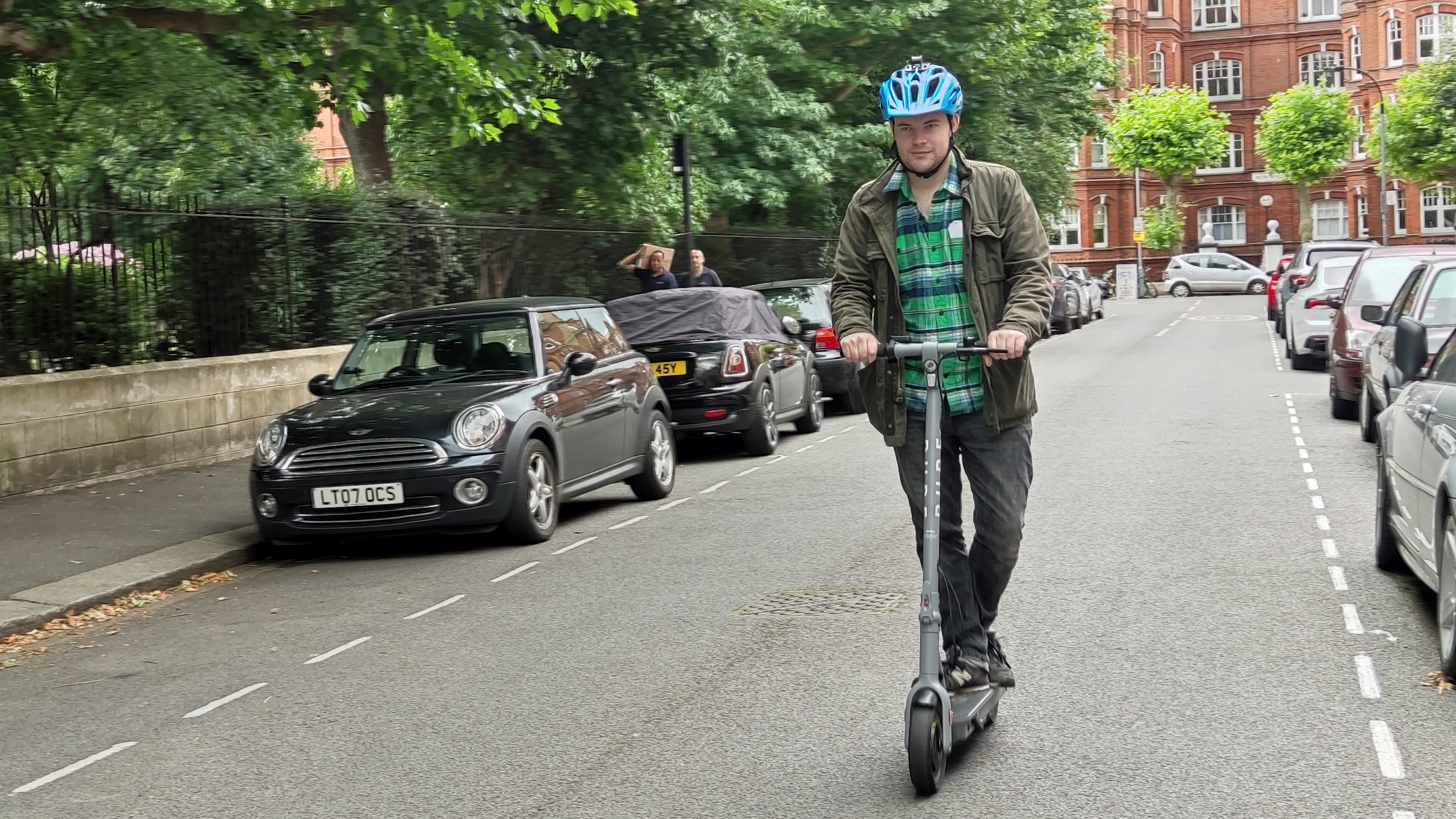E-scooters could be safer than bikes, according to this new study
E-scooter collision rates were 5x lower than bicycles in 2020

Sign up for breaking news, reviews, opinion, top tech deals, and more.
You are now subscribed
Your newsletter sign-up was successful
In the market for an electric scooter, but worried about your safety on the roads? A new UK study found e-scooters were statistically safer than bicycles and motorbikes during 2020, for both riders and pedestrians alike.
The research, published by the Royal Society for the Prevention of Accidents (RoSPA), looked at government incident metrics from 2020. The report also uses data from Neuron Mobility Ltd, a company behind an e-scooter sharing scheme in Newcastle, covering October 2020 to May 2021. RoSPA used this data to calculate the average number of collisions that occurred per million miles traveled.
The results are great news for riders, as the report found that electric scooters were five times less likely to be involved in an incident on the roads than a bicycle. They’re also nine times less likely to encounter a collision than a motorbike.
The report states: “In comparison to other common modes of transport, including motorcycles and pedal cycles, we observed comparatively lower casualty rates among e-scooters users.”
It’s worth noting that the use of e-scooters has dramatically increased since the end of 2020, when the data was originally collected, and the coronavirus pandemic led to fewer cars on the roads. Part of the data supplied also comes from Neuron, which has a vested interest in being seen to produce safer modes of transport. However, if you’re in the market for even a cheap e-scooter, it’s good to know you’re in pretty safe hands.
Analysis: Could this change e-scooter laws?
Although this is a nice confirmation of safety for e-scooter riders everywhere, it could ironically be no accident that this UK-based accident report was released just before transport secretary Grant Schapps is due to announce changes to UK e-scooter laws on 10 May.
If you’re in the UK, you might be able to finally ride your personal e-scooter on public roads, where you could previously only use the ones provided by scooter-sharing schemes.
Sign up for breaking news, reviews, opinion, top tech deals, and more.
In the US, of course, e-scooters are already allowed on roads with and without cycle lanes - provided they top out at no more than 25mph.
Should the UK government allow e-scooters on roads, it’s likely to follow suit with similar caveats, including the speed limit cap already in place on shared scooters: 15.5mph. Other rules include a maximum continuous power rating of 500W. If you’re after a faster ride, you might be better off with an electric bike.

Matt is TechRadar's expert on all things fitness, wellness and wearable tech.
A former staffer at Men's Health, he holds a Master's Degree in journalism from Cardiff and has written for brands like Runner's World, Women's Health, Men's Fitness, LiveScience and Fit&Well on everything fitness tech, exercise, nutrition and mental wellbeing.
Matt's a keen runner, ex-kickboxer, not averse to the odd yoga flow, and insists everyone should stretch every morning. When he’s not training or writing about health and fitness, he can be found reading doorstop-thick fantasy books with lots of fictional maps in them.